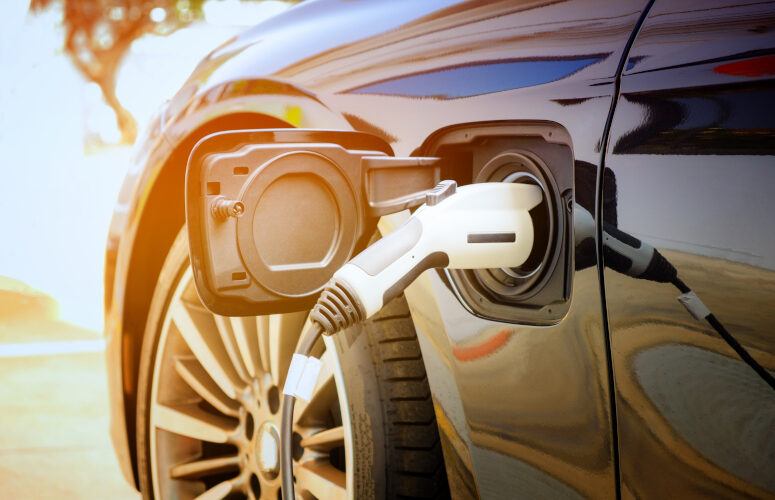
Murphy Administration Adopts Zero-Emission Vehicle Standards
On Nov 21, 2023Gov. Phil Murphy and Department of Environmental Protection (DEP) Commissioner Shawn M. LaTourette today announced the filing of the Advanced Clean Cars II rule, which goes into effect on Dec. 18, and requires vehicle manufacturers to make zero-emission vehicles (ZEVs) an increasing percentage of their new light-duty vehicle sales beginning in model year 2027, ramping up to 100% ZEVs by 2035.
New gasoline- and diesel-fueled vehicles that are being manufactured must also meet more stringent exhaust emission standards. Taking effect starting in model year 2027, the governor’s office says this provides time for auto industry transition and continued development of charging infrastructure and a more robust and cleaner electrical grid in New Jersey.
The sale of gasoline cars will not be banned, but according to a press release issued by the governor’s office, the rule “provides certainty to vehicle manufacturers, suppliers, utilities, and charging infrastructure companies to make the long-term investments that will be crucial to large-scale deployment of light-duty ZEVs and consumer choice.”
“By filing the landmark Advanced Clean Cars II rule, New Jersey builds upon its standing as a national leader in climate action and its participation in the global Accelerating to Zero commitment,” said Murphy.
The New Jersey Business & Industry Association (NJBIA) has been in opposition to the mandate. Issuing a statement today, NJBIA Deputy Chief Government Affairs Officer Ray Cantor said that 10,000 letters were sent to the Legislature to stop the mandate, this included more than 100 businesses and labor groups, not to mention groups representing minorities and lower-to-middle income residents. These groups opposed the mandate based on the cost of electric vehicles, the lack of a robust EV charging infrastructure and grid capacity, and the fact that EV’s do not pay into the state’s Transportation Trust Fund. Cantor’s full statement can be found here.
Since 2019, the state has funded 2,980 charging stations with 5,271 ports at 680 locations. Additionally, the number of EVs in New Jersey has grown to more than 123,000, representing 12% of new vehicle sales.
However, the mandate requires 43% of new vehicle sales to be electric as soon as 2026.
While the state claims EV sales in New Jersey have increased by 50%, nationally, dealerships report an overrun of unsold EVs in their lots, according to multiple reports.
According to Murphy’s press release, the transportation sector constitutes the largest source of climate pollution in New Jersey at 37% of those emissions. By increasing ZEV sales and the stringency of the multi-pollutant exhaust emission standards, the state will also reduce emissions of localized air pollution from nitrogen oxides (NOx) and fine particulate matter (PM2.5) that will provide important public health benefits, especially in urbanized areas and overburdened communities.
“Cleaner cars and trucks mean cleaner air for our children and families, because the tailpipes of our own vehicles are a leading cause of poor local air quality,” said DEP Commissioner LaTourette. “As New Jersey transitions to a zero-emission vehicle future, we will improve our quality of life and public health. At the same time, we will reduce climate pollutants from the transportation sector, the greatest source of planet-warming pollution in New Jersey and the nation.”
The rule will be published in the Dec. 18 edition of the New Jersey Register. A courtesy, pre-publication copy of the rule will be posted in early December to the DEP Rules and Regulations webpage.
To access more business news, visit NJB News Now.
Related Articles:





